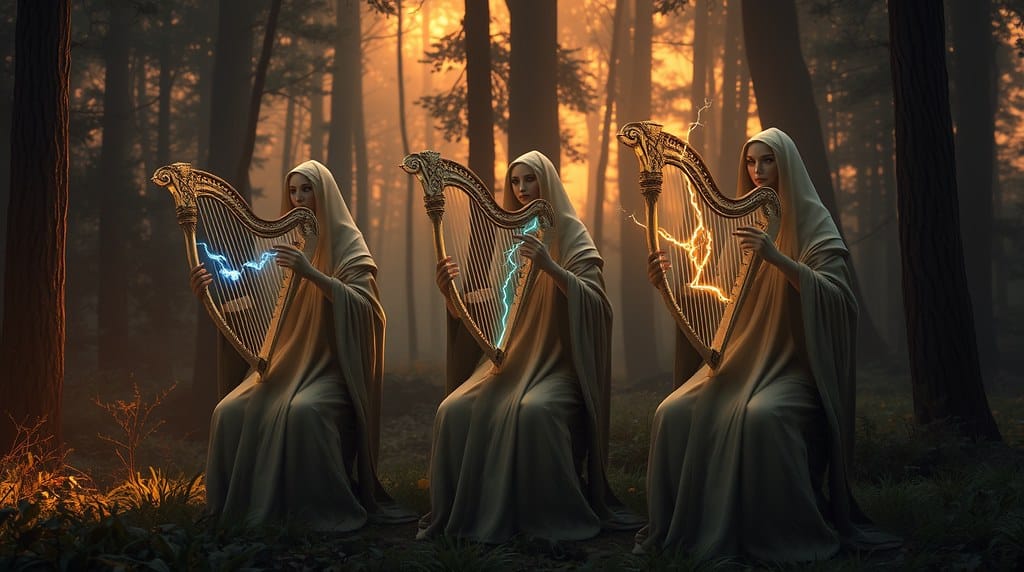Music Industry Demands Warning Labels as AI Band Hits 1 Million Spotify Streams
The music industry is sounding the alarm after an entirely AI-generated band achieved over 1 million plays on Spotify without listeners knowing they were hearing artificial intelligence, not human creativity. Industry insiders are now calling for mandatory warning labels on AI-generated music, sparking a heated debate about transparency, authenticity, and the future of musical artistry.
The AI Band That Fooled Everyone
The controversy centers around a mysterious group that appeared on streaming platforms with professionally produced tracks, complete with realistic vocals, instrumental arrangements, and even a fabricated backstory. The band's success went unnoticed by both fans and industry professionals until tech journalists uncovered that every element—from the melodies to the lyrics to the virtual band members themselves—was generated using advanced AI tools.
Within weeks of release, the AI-generated tracks accumulated over 1 million streams across multiple platforms, with Spotify leading the charge. Listeners left positive reviews, shared the music on social media, and even requested concert dates, completely unaware they were engaging with artificial intelligence rather than human musicians.
Industry Leaders Sound the Alarm
The revelation has prompted swift action from music industry organizations and prominent artists. The Recording Industry Association of America (RIAA) has initiated discussions about implementing disclosure requirements for AI-generated content, while several major labels have begun reviewing their submission processes.
"This isn't just about transparency—it's about preserving the integrity of human creativity," said Sarah Martinez, a music industry analyst. "When listeners can't distinguish between AI and human artistry, we're facing a fundamental shift in how we value musical expression."
Several Grammy-winning artists have joined the call for warning labels, arguing that undisclosed AI music creates unfair competition and undermines the years of training and emotional investment that human musicians bring to their craft.
The Technology Behind the Deception
The AI band utilized cutting-edge generative AI models capable of creating realistic vocals, instrumental tracks, and even album artwork. These tools have become increasingly sophisticated, with some AI systems now able to:
- Generate original melodies and harmonies in various musical styles
- Create realistic human-sounding vocals with emotional inflection
- Produce professional-quality instrumental arrangements
- Generate accompanying visual content and promotional materials
The technology has advanced to the point where detecting AI-generated music requires specialized analysis tools, making it nearly impossible for average listeners to identify artificial content.
Streaming Platform Response
Spotify and other major streaming platforms have remained largely silent on the controversy, though industry sources suggest internal discussions are underway about potential policy changes. The platforms face a delicate balancing act between embracing technological innovation and maintaining artist and listener trust.
Some platforms have begun experimenting with voluntary disclosure systems, allowing creators to self-identify AI-generated content. However, critics argue that voluntary systems are insufficient and that mandatory labeling is necessary to protect both artists and consumers.
The Broader Implications
This incident highlights broader questions about AI's role in creative industries. While AI tools can democratize music production and provide new creative possibilities, the lack of transparency raises concerns about:
- Economic impact on human musicians: Undisclosed AI music could undercut traditional artists' streaming revenue
- Authenticity in artistic expression: The value of human emotion and experience in music creation
- Consumer rights: Listeners' right to know whether they're hearing human or artificial performances
- Industry standards: The need for clear guidelines in an rapidly evolving technological landscape
Moving Forward: Industry Recommendations
Music industry advocates are proposing several potential solutions:
Mandatory disclosure requirements similar to those used for sponsored content, clearly identifying AI-generated music with visual and textual indicators.
Platform integration of AI detection tools to automatically flag potentially artificial content for review.
Industry certification programs that would verify human-created music while allowing AI-assisted content with proper labeling.
Revenue sharing adjustments that account for the different production costs and creative investments between human and AI-generated music.
The Path Ahead
As AI technology continues to evolve, the music industry faces a critical moment in defining its relationship with artificial intelligence. The call for warning labels represents more than just a transparency measure—it's an attempt to preserve the human element that has always been central to musical expression.
The outcome of this debate will likely shape not only how we consume music but how we value creativity itself in an age of increasingly sophisticated artificial intelligence. For now, the industry waits to see whether streaming platforms will voluntarily adopt disclosure requirements or whether regulatory intervention will be necessary to maintain trust between artists, platforms, and the listening public.

